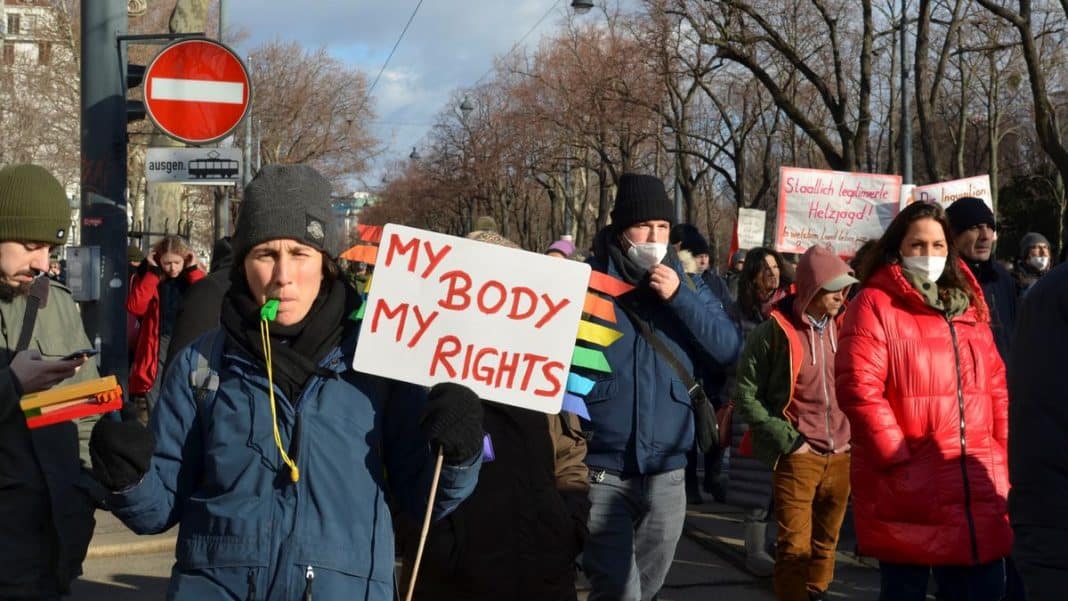The Austrian Parliament passed a law on Thursday requiring those over the age of 18 who live in the country to be vaccinated against covid-19 and imposing fines of up to 3.600 euros ($4,085) for failing to comply with the rule, which has broad political support but has caused significant polarization on the street.
The law for compulsory covid vacctination, the first of its type in an EU member country, received support from 137 of the 170 deputies who voted in Parliament (of of 183 seats), with only the ultra-nationalist, anti-vaccine FPÖ party opposing it as a group.
While the deputies approved the law, hundreds of people protested in the center of Vienna against mandatory covid vaccination, accompanied by a heavy police presence that blocked entrance to the Hofburg district, the historic imperial palace that houses the Government and the Parliament.
Covid vaccination polarization in Austria
The FPÖ which has a 20% voting intention, has been pushing for weeks for protests against pandemic-control measures, and 30,000 people turned out in Vienna last Sunday.
Pregnant women, those who are allergic to covid vaccine, and those who have recovered from the disease within the last 180 days are excluded from the required immunization, which takes effect in February.
The legislative wording states unequivocally that the vaccine cannot be “imposed by the use of force,” and penalty range from 600 to 3,600 euros. The penalty will be used to fund public hospitals.
Last November, the coalition government formed by the conservative People’s Party (OEVP) and the environmentalist Greens claimed that it was compelled to make this choice due to its inability to persuade enough voters of the importance of vaccination. Covid vaccination rates have climbed from 65% to 71% of the population since then.
The Executive was able to overcome the initial hesitancy of the opposition’s social democratic and liberal deputies, who voted in favor of the mandatory covid vaccination measure. Important parts were changed throughout the law’s development process, such as raising the compulsory vaccination age from 14 to 18 years.
According to the most recent polls, just 45% of the people supports the law’s implementation in February, while another 17% prefers to postpone it, and another 34% is completely opposed to the regulation.

